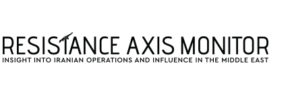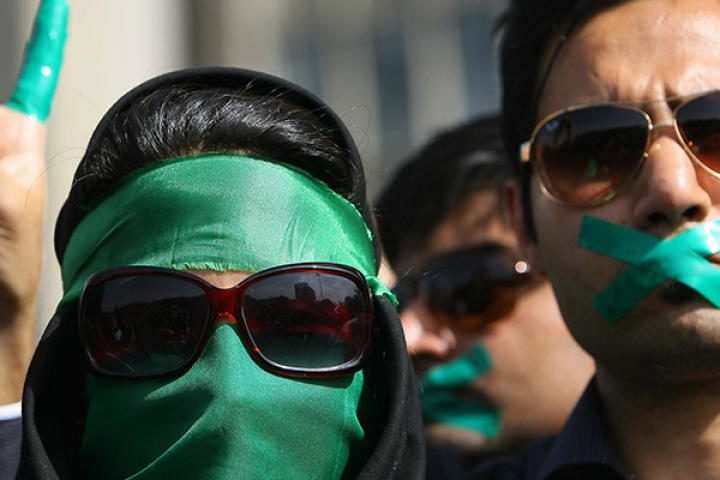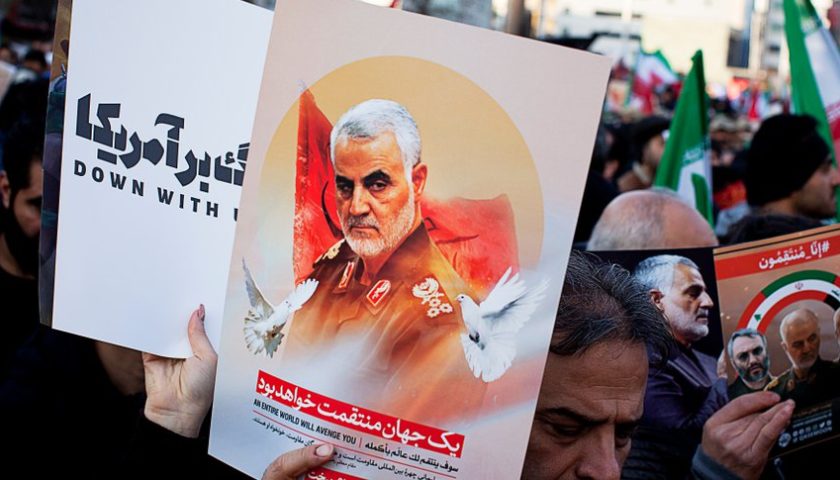This article originally appeared in Atlantic Council’s Iran Source on February 8, 2021.
Lebanese militant group Hezbollah remains committed to avenging Qasem Soleimani’s death—at least rhetorically. Shortly after the United States assassinated the Quds Force commander in January 2020, Hezbollah’s Secretary-General Hassan Nasrallah vowed that US troops “who came to the region vertically will return home horizontally.” His hand gesture—a horizontal hand affixed perpendicularly over a vertical hand—representing US forces returning home in coffins became the official symbol of Iran and the Resistance Axis’ promised “Hard Revenge.” Nevertheless, at the time of Soleimani’s killing, Hezbollah was too constrained by domestic and international factors to act on these threats. As the first anniversary of Soleimani’s demise came and went, the group’s leadership reiterated its promise to exact retribution for the fallen Quds Force commander—but Hezbollah is even more constrained now than before.
When Soleimani was killed, Lebanon was still in the throes of widespread economic protests in Lebanon which had begun on October 17, 2019. Those protests weren’t focused on Hezbollah per se, and so they didn’t sweep the group away, siphon its support base, or weaken it in the manner that some were expecting. However, they did prevent Hezbollah from acting irresponsibly to avoid compounding—or being seen to compound—Lebanon’s economic crisis. Attacking US troops or regional assets would have likely spurred Washington—led by a more aggressive Donald Trump administration—into retaliatory action or sanctions against Lebanon. Such an outcome would have turned Hezbollah into the focus of the protest movement, an outcome it wanted to avoid.
While the protests have largely quieted down, they haven’t died out. The anger that motivated people to take to the streets is still simmering beneath the relatively calm surface. Riots recently erupted in Tripoli over the latest COVID-19 lockdown’s anticipated negative economic impact on struggling locals.
That factor alone was sufficient to continue restraining Hezbollah’s hand. But additional limitations have arisen in the intervening year: Lebanon’s economy has continued its unabated collapse; the poverty rate continues to skyrocket; the currency value is plummeting; and there’s no end in sight to this crisis. According to the International Monetary Fund, Lebanon’s economy is one of the two in the Middle East not expected to recover or see any economic growth in 2021.
The August 4, 2020 Beirut Port blast compounded the economic strain. Its immediate impact alone—two hundred people killed, six thousand wounded, three hundred thousand people homeless—caused $15 billion in property damage. It also led to the resignation of Prime Minister Hassan Diab, which left Lebanon without a fully functioning government to confront the country’s mounting problems. This included one of the steepest surges in COVID-19 cases globally—spiking at between three thousand to five thousand daily cases for the past month—overwhelming Lebanon’s medical system and further depressing its economy.
Meanwhile, no help is forthcoming. Traditional foreign donors refuse to financially intervene. Some, like France, refuse due to Beirut’s unremedied rampant political corruption, and others, such as Saudi Arabia, refuse due to Hezbollah’s influence. And any hopes Lebanon had of jumpstarting its economy by exploiting its offshore hydrocarbon resources in exploration blocks disputed with Israel have been indefinitely deferred, as Israeli-Lebanese maritime border discussions stalled in December.
External factors are also tying Hezbollah’s hands. Despite its rhetoric equating President Joe Biden with his predecessor Trump, the group realizes that the Biden administration is likely to be more flexible on Hezbollah’s participation in Lebanese politics. American flexibility is crucial for the group at present and could contribute to disentangling Lebanon’s government formation process, which has stalled for months due to disagreements—that Hezbollah is trying to bridge—between Prime Minister-designate Saad Hariri and Free Patriotic Movement leader Gebran Bassil. Any attack by Hezbollah on US regional assets would make flexibility hard to justify for the new Biden administration, to say nothing of the complications it would cause for Biden’s willingness to reenter the Iran nuclear deal, which could entail lifting sanctions off the group’s patron.
The constraining effects of these factors are also evident in Hezbollah’s interactions with another adversary: Israel. On July 20, 2020, the Israel Air Force killed one of the group’s fighters, Ali Kamel Mohsen, in an airstrike targeting Damascus. Per the “rules of the game,” Hezbollah should have attempted to retaliate against the Israelis, as it did after the January 2015 strike that killed Jihad Mughniyeh and six others, the assassination of Samir Quntar later that year, or—most recently—the August 24, 2019 airstrike killing Hassan Zbeeb and Yasser Daher.
Admittedly, the 2015 and 2019 retaliations were largely exercises in theatricality, carefully crafted to even the score or at least convey that it had done so to its support base while sending a nonlethal message to the Israelis. These retaliations were accompanied by media leaks on the timing of the retaliation and a message to Israel signaling Hezbollah’s disinterest in escalation.
Simultaneously, however, the group acknowledged that each such retaliation carried a risk—however minimal—of unintended escalation, which could lead to an undesired war. But Hezbollah’s muted responses to Mohsen’s killing demonstrated that Lebanon’s collapse had made even that minimal risk too high.
The group made its usual threats against Israel, but when its attempted retaliations came—first on July 27, 2020 and then a month later—they were relatively quiet affairs that were easily foiled by Israeli troops. Desperate to avoid the accusation by the Lebanese people that it was compounding their misfortunes to serve foreign interests, Hezbollah—known for boasting of its operations—quickly denied that it had carried out any action, chocking up the incidents to an Israeli loss of nerve.
The group thereafter claimed that it was only biding its time to avenge Mohsen, a sharp contrast to previous retaliatory actions that came mere days after the Israeli airstrikes killing Hezbollah’s fighters. Perhaps, due to an understanding that the group was too constrained to carry out its promised attacks, the Israel Defense Forces (IDF) recently reduced its alert level and resumed normal, open operations on the Lebanese-Israeli border. Hezbollah’s top leaders have similarly caveated their promise to avenge Soleimani, so taking their more bellicose rhetoric at face value is a mistake. In fact, Nasrallah recently stated that, while a confrontation with the US would happen, the group would not “be lured… into a miscalculated confrontation or a confrontation on the timing of our enemies.” Similarly, his deputy Naim Qasem said that avenging Soleimani was part of a “long, complicated course of confrontation with America. God willing, we will conduct our duty in the appropriate manner.”
Hezbollah hasn’t opted for total inaction. In fact, from the outset, the group hinted that it would adopt a more patient approach to the post-Soleimani stage of its confrontation with the US—one tailored to its current constraints. In an article titled “the Great Liberation War,” the group’s Al-Akhbar mouthpiece said that the goal of this conflict would be to remove “every [trace] of American regional influence”—not only “soldiers and planes,” but every “committee of advisers, artists, diplomats, human rights activists, developers, financiers, [and] directors of civil society groups”—while acknowledging Nasrallah’s prohibition on attacking American civilians.
In other words, in line with Hezbollah’s holistic conception of “resistance” as extending beyond only armed activity, the group is opting for a soft war. Over the past year, Hezbollah’s media and propaganda organs have engaged in a campaign blaming the US for causing or exacerbating all of Lebanon’s current crises—including the economic collapse, coronavirus, and Beirut Port explosion—while simultaneously presenting the group as having all of the solutions to these problems, if the Lebanese people would only listen. In doing so, it aims to undermine Washington’s influence in Lebanon at the same time as it bolsters its own image as a responsible actor.
This doesn’t preclude the possibility of Hezbollah ever attacking US regional assets. But the group will continue tailoring its actions to its current circumstances and adjust them as they change. Currently, engaging the US in a direct confrontation carries more detriment than benefit and, thus, the ever-pragmatic Party of God will continue opting for strategic patience.
David Daoud is a nonresident fellow at the Atlantic Council and a research analyst on Lebanon and Hezbollah at United Against Nuclear Iran (UANI). Follow him on Twitter: @DavidADaoud.



